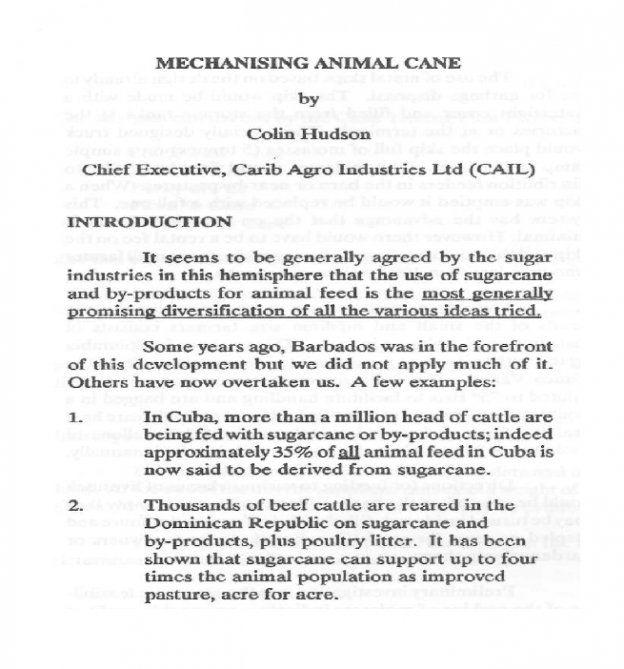Louis E. Chinnery, Sandra R. Bellamy, Maria M.H. Agard, Nigel McA. Scott, Amina Adam, Michael P. Smith, Deryck S. Murray and Trudy Small for the 7th Annual Technical Conference of the BSTA 1989
In Barbados sugarcane is attacked by several pest species of varying economic importance. Of these the sugarcane moth-borer, Diatraea saccharalis (Fabri cius), the sugarcane root-borer, Diaprepes abbreviatus (Linnaeus), and the white grubs of the brown hardback, Clemora (=Phyllophaga) smithi (Arrow), are the most important (Alleyne, 1983; Alam and Gibbs, 1988). Currently, Diatraea is under effective biological control (Alleyne, 1983) but Diaprepes and Clemora are still problematic especially in the low rainfall areas after prolonged drought years (Alam and Gibbs, 1988). However some promising results have been achieved with an entomogenous nematode, Neoplectana (=Steinernema) glasseri, against both of these pests (Alam and Gibbs, 1988).
Susceptibility of sugarcane varieties to thrips in Barbados pdf
